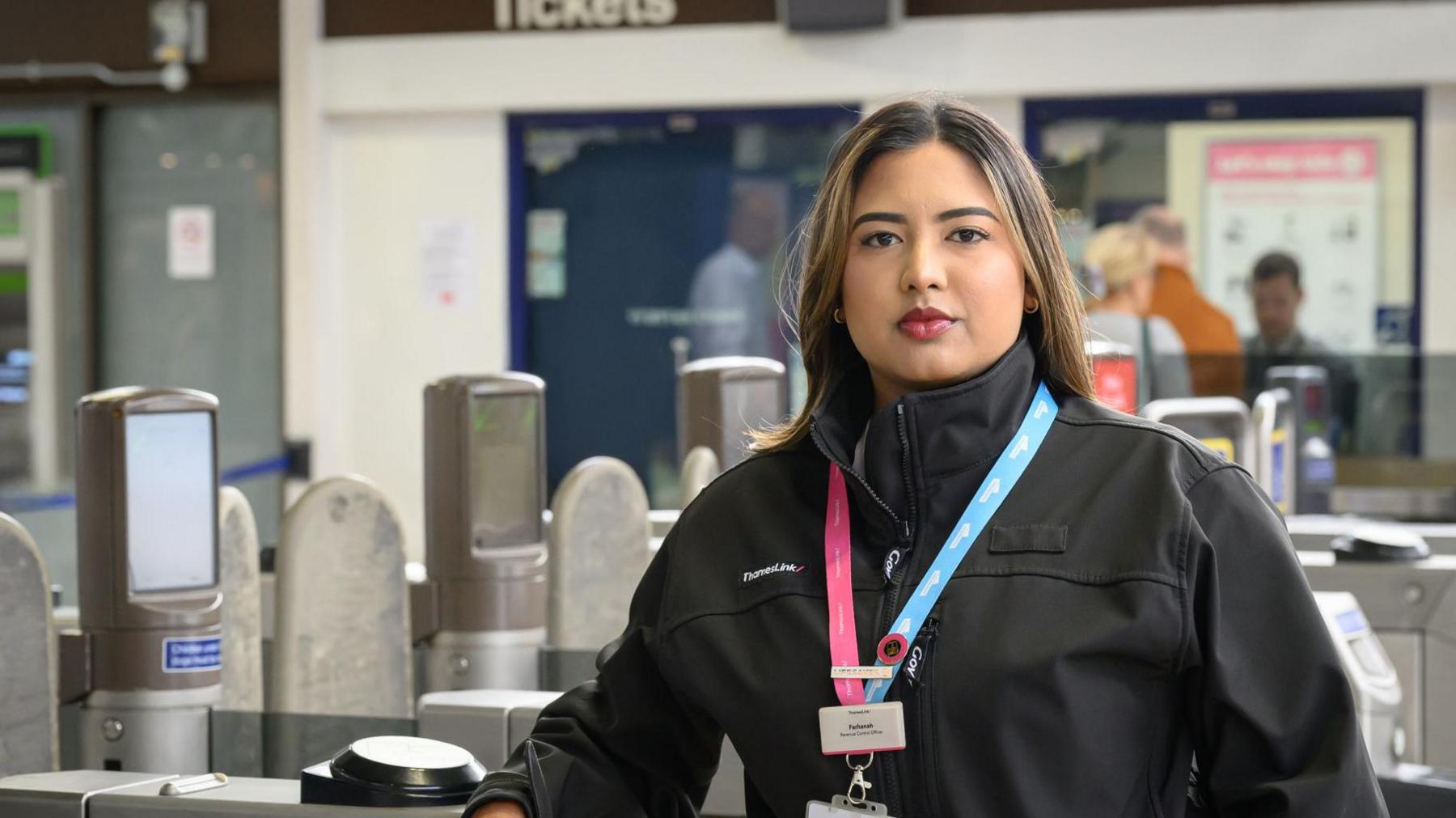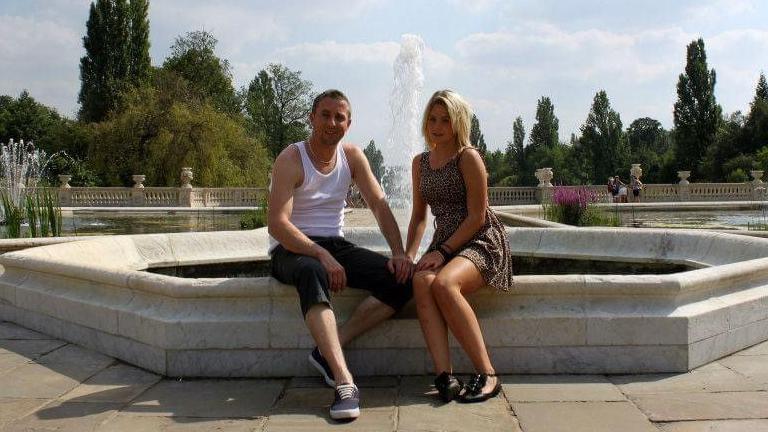'Suicide prevention training helped me save a life'

Farhanah Emrith said suicide prevention training at work helped boost her confidence when it came to making life-saving interventions
- Published
A railway worker who underwent suicide prevention training said it gave her the confidence to identify a man in crisis and intervene - ultimately saving his life.
Farhanah Emrith, who lives in Bedford and works for Thameslink, said it enabled her to "spot a vulnerable person and communicate effectively".
Her actions have been praised by Samaritans, which works with rail companies to reduce suicides on the tracks and offer support to those affected.
"We know that every suicide leaves a lasting effect on family and friends, so what Farhanah did was incredible," the charity said.
Ms Emrith was finishing her shift as a Revenue Control Officer for Thameslink when a "clearly distressed" man pushed through the barriers.
"He had been drinking a lot of alcohol and I heard him saying he wanted to take his own life," she said, leading her to "put in an emergency call to shut the lines running into the station".
She then calmly began speaking with him.
"I asked if he was OK and what was making him feel this way and he told me some things had gone wrong in his personal life.
"I tried to break him out of the negative thought cycle by saying 'this isn't the solution, you've got so much to live for'," she continued.
An off-duty police officer joined her and together they kept the man safe until British Transport Police arrived.

Ms Emrith believes it just takes a simple conversation to turn things around
Ms Emrith said training at work helped boost her confidence, enabling her to make lifesaving interventions.
Anne-Marie Alderson, programme manager for the Network Rail Partnership at Samaritans, encourages people to "trust their gut" and "strike up some small talk" to divert thoughts away from potential harm.
"Whilst the signs that someone might be suicidal may not always be obvious, you might notice some small tells such as they're just staring at the floor, or they may be visibly upset," said Ms Alderson.
'Obvious need'
Robert Stringer, the founder and trustee of suicide prevention charity Hector's House, said he wanted specialist training extended to all workplaces.
"Where someone works in high-risk locations, such as Farhanah, there is an obvious need," said Mr Stringer.
The Berkhamsted-based charity trains individuals in settings such as education or the workplace, to spot where people may need support and, if appropriate, to intervene.
"It is rarely one thing that causes someone to get to crisis, but often a stacking of events," said Mr Stringer.
"If you feel that something isn't right, you are probably right. The important thing about talking, is listening."
To mark World Suicide Prevention Day, Thameslink is encouraging members of the public to look out for one another when travelling.
The rail operator is urging anyone who spots concerning behaviour to text the BTP on 61016, or call 999 if it is an emergency. Alternatively, call Samaritans free and confidentially on 116 123.
If you have been affected by the issues raised in this story you can visit the BBC Action Line for support.
Get in touch
Do you have a story suggestion for Beds, Herts & Bucks?
Follow Beds, Herts and Bucks news on BBC Sounds, Facebook, external, Instagram, external and X, external.
- Published12 August

- Published29 June 2024
